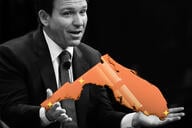You have /5 articles left.
Sign up for a free account or log in.
Bill Cosby dodged punishment last week in the sexual assault case against him in Pennsylvania. Jurors couldn’t make up their minds whether “America’s dad” had drugged and assaulted a staffer of the Temple University women’s basketball program whom he mentored as a trustee there.
Though many focused on the powerful testimony of Andrea Constand, the team’s former director of operations, the defense from Cosby’s lawyer -- claiming that Cosby and Constand maintained a consensual sexual relationship -- also deserves some scrutiny.
If the two had forged a romantic connection, that’s not illegal, but it certainly breaches ethical lines that an institution’s governing board must preserve, experts and advocacy groups say. Temple has stood by Cosby, noting the lack of legal finding that he assaulted anyone. But the ethical issues raised by Cosby's defense -- let alone what he's accused of -- may raise questions about Temple's continued support of him.
Such a relationship could jeopardize the neutrality of the trustee, said Richard Legon, president of the Association of Governing Boards of Universities and Colleges. If the other party was a college or university employee, they could influence a board’s agenda, Legon said.
“And the fallout of relationship gone bad, especially in high-profile cases, can create all sorts of problems the institution need not tolerate,” Legon said.
Constand denies romantic involvement with Cosby -- she said she considered him a guide and a friend. But that dynamic shattered in 2004 when Cosby, more than 30 years her senior, invited Constand over to his home, she said, and gave her pills that left her “frozen” while he touched her breasts and genitals and forced her to touch his penis.
The pressures surrounding Constand and her job were quite high, said Nancy Hogshead-Makar, a civil rights lawyer and founder of Champion Women, an advocacy group for girls and women in sports, who has closely followed Cosby's case. Constand, who identifies as a lesbian, was in her 30s when Cosby made his advances, and likely many were vying for her position. As is common, she sought a mentor, Hogshead-Makar said.
Wherever there is a power dynamic like the one between Constand and Cosby, there should be a certain level of oversight, Hogshead-Makar said.
"From the standpoint of should we blame her for trusting him, for taking the three pills, should we blame her?" she said, saying that Constand was putting trust in a mentor. "No -- that’s kind of what mentors are expected to do, act on your best interests."
She noted that the federal law protecting against gender discrimination, Title IX of the Education Amendments of 1972, does include all members of a university community, not just the students or employees.
If a governing board member enters a personal relationship with a university employee, they should resign, Legon said. He called any prospective romantic relationship “inappropriate” and said it could result in a hit to an institution’s reputation. In the cases that Legon was privy to, trustees stepped aside if they wanted to continue the relationship. He declined to name the institutions where he knew of such relationships, but said it wasn’t many.
Legon said he was unaware of any policies at individual colleges or universities that forbid personal relationships between employees and trustees. A specific policy addressing this issue may not be necessary, though, he said.
Boards carry a fiduciary responsibility and must hold themselves accountable even in the absence of a formal policy addressing every possible scenario, Legon said. Board bylaws often outline broadly what is deemed acceptable.
Legon saw no harm in adopting a policy around romantic relationships, though he still questioned its usefulness. Still, boards sometimes draft policy in response to a crisis to demonstrate their commitment to fixing certain problems, he said -- the obvious example being the changes prompted by the Pennsylvania State University sex abuse scandal.
“The key takeaway is boards have to monitor, have to oversee, their own behavior,” he said.
Temple -- Cosby’s alma mater -- has not severed ties with the revered comedian, who now has been accused of assault by more than 60 women.
A spokesman, Brandon Lausch, confirmed via email Cosby earned his undergraduate and an honorary degree from Temple. Cosby resigned from the Board of Trustees in December 2014 amid the assault allegations. At least 25 institutions have rescinded their honorary degrees to Cosby, though Temple has not done so.
The university’s policies or trustee bylaws do not mention any conflicts of interest regarding personal relationships between trustees and employees. Lausch wrote in a follow-up email that no such policy exists.
The chairman of Temple’s trustee board, Patrick O’Connor, did not return phone calls to his office. O'Connor represented Cosby when Constand originally sued him for the 2004 episode -- she brought a civil lawsuit that was settled in 2006 after Pennsylvania authorities could not collect sufficient evidence for criminal charges.
Though the jury deadlocked in the current trial, the county's district attorney said he will continue to pursue charges against Cosby.
Cosby did not speak after the judge declared a mistrial.
Cosby was a high-profile donor to Temple, and in addition to his degree, a $3,000 scholarship is named for him and his wife: the Camille and Bill Cosby Scholarship in Science. Lausch in his email refused to discuss Cosby’s donor history, but The Boston Globe has reported he gave hundreds of thousands of dollars to his other alma mater, the University of Massachusetts Amherst.
Temple’s Faculty Senate had approved a resolution “condemning” the university’s continued links to Cosby, which also called for officials to recall Cosby’s honorary degree. The Faculty Senate has not discussed Cosby in more than a year, its current president, Michael Sachs, wrote in an email.




